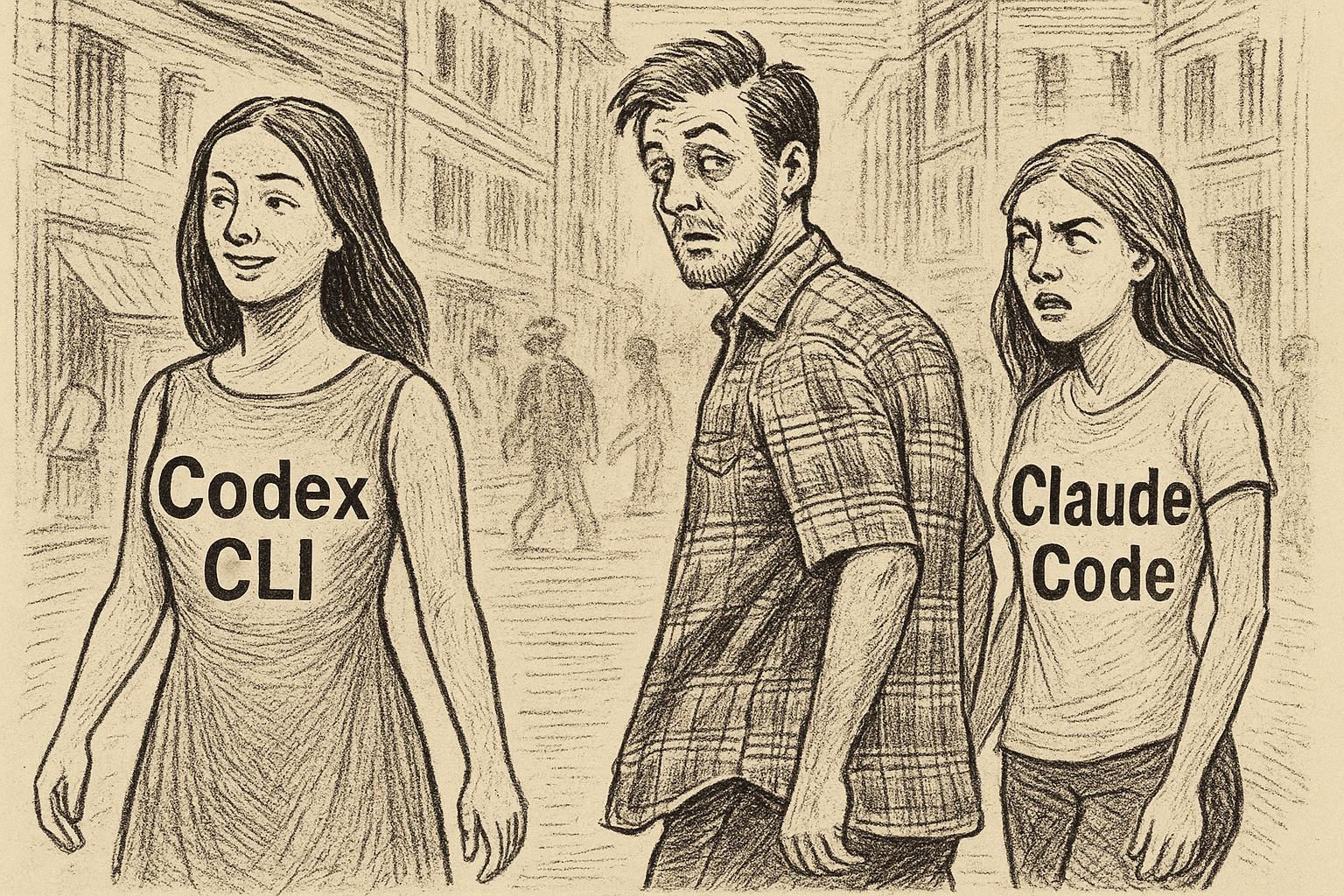Trying out Codex CLI
A while ago I was a little skeptical of AI-assisted coding. Mostly because my experience had been with CoPilot autocomplete and it was really not good. I still avoid AI autocomplete to this day, even if I can see it got better because I still find it distracting and often still not great.
That said, Claude Code shook my world view and I’ve been daily driving it ever since. I need to write a post about how I use this agent, but tl;dr I use it for the boring parts of coding and to help me read and review code (especially my own) instead of using it to write feature code.

I have been happy with Claude Code, but I also heard very good things about the new GPT-5 model for coding and wanted to check it out. Enter the Codex CLI. It’s OpenAI’s answer to Claude Code.
I am approaching this with a very open mind. I completely understand that it is early times in Codex CLI land and thus I did not expect it to have feature parity with Claude. I’m ok with that, just to get that out of the way.
The onboarding was rough
My first experience with it was that it wouldn’t install due to an issue in the post-install of a dependency (ripgrep, which, I must say, I already had installed.) I went to file a ticket and say that someone else had already done so.
No matter! I thought. I figured out how to get around it and then decided to try it. I opened a local repo and typed /init.
Codex decided it wanted to run tests to check the status of the repo. Fair enough, go ahead. It then failed to compile my Go code, claiming the Go toolchain wasn’t available. I was confused by that, so I closed Codex CLI and ran go version, all good. I ran my tests, all passed. Wut?
I tried again and this time I told it that I checked and I had the toolchain installed. It tried again, no dice. It kept trying until eventually I stopped and did some digging. That’s when I learned that Codex CLI runs inside a sandbox and doesn’t share my shell’s environment. Ok, that was a little upsetting. So I asked Codex CLI how we could provision the sandbox with Go. It proceeded to look for Go 1.13, which was release over six years ago. It asked me to download the tarball and leave it in a certain directory and it would take from there.
Ok, time for some more digging. It’s a this point that I must point out that the Codex CLI documentation is basically non-existent, and being a relatively newcomer, there’s not a lot of resources out there. Again, I get it, let’s just get through this initial steps.
I keep at it until I figure the issue: though my shell’s PATH includes Go 1.25, the sandbox’s did not. I couldn’t quite figure out why but I did manage to get it working by telling GPT where to find the Go binaries.
Once it got working
Now, once I got it working, things went a lot smoother. I quickly got used to the differences from Claude Code (and they are many) and got somewhat comfortable with it. I got GPT to analyze my code and look for bugs and it found a minor one that had escaped Claude for a long time. That was cool.
I found that it tends to be a little noisier than Claude Code, because CC tends to hide somethings behind its quirky verbs (“lampoonig…”, etc) This isn’t necessarily a negative, just different and something to get used to.
I miss the TODO lists that Claude Code creates and follows. Again, not a huge deal. The part that it needs to improve is tool calling. More than once I saw it calling some Go tool with bad parameters. And also, it doesn’t seem to quite grasp the error messages.
Case in point, I asked it to run a linter, so it started running golangci-lint, but it ran it at the root of the repo, where there are no Go files, and without parameters, which resulted in an error “No Go files”. It didn’t seem to understand this error and concluded golangci-lint wasn’t installed.
It then entered a loop trying the same command over and over again until I interrupted it and told it to pass ./... to include subdirectories. It then tried again with the parameters, but bizarrily this time it decided that the golangci-lint would be in ./bin, which is not true at all. So I had to tell it where to find it. And then it worked fine.
Conclusion
It’s early days and it’s clear there’s some ground to make up if they want to catch up, but I also remember the early days of Claude Code. The CC team iterated quickly and we got to where we are today, and I’m hoping the Codex team will do the same. They seem very active in answering questions on X, so I have hope.
I’m hopefuly and interested. I’ll keep an eye on it.